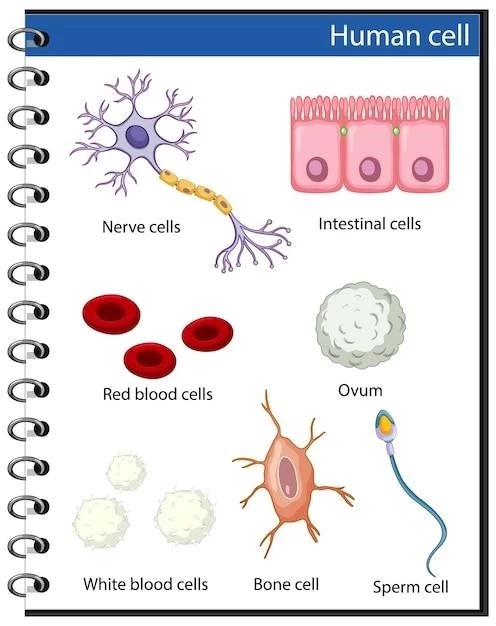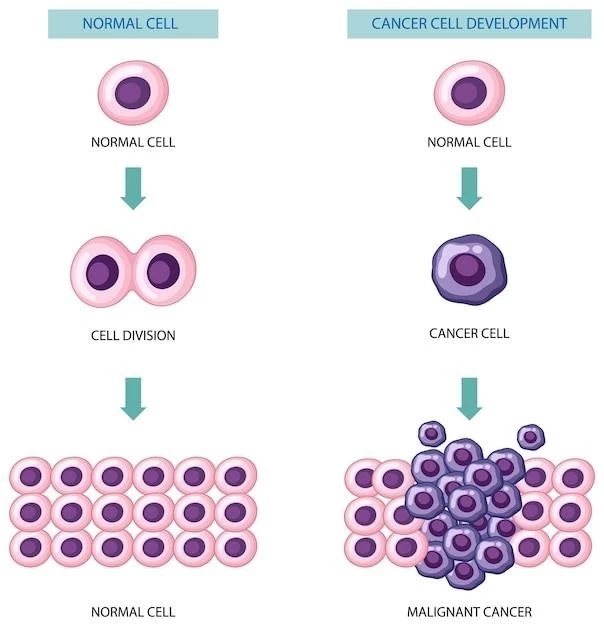Understanding Langerhans Cell Histiocytosis (LCH)
Langerhans Cell Histiocytosis (LCH) is a rare disease that affects the immune system. It can manifest as bone lesions, skin rashes, and even lung involvement. This multisystem disorder requires timely diagnosis and appropriate treatment.
I. Introduction to Langerhans Cell Histiocytosis
Langerhans Cell Histiocytosis (LCH), previously known as Histiocytosis X, is a rare disease characterized by the over-production of Langerhans cells, a type of white blood cell that normally helps the body fight infection. In LCH, these cells build up in various tissues and can form tumors or damage organs.
While LCH can affect people of all ages, it most commonly occurs in children between the ages of 1 and 3 years old. The exact cause of LCH is unknown, and research is ongoing to understand the underlying mechanisms that lead to the disease.
Individuals with LCH may present with a range of symptoms depending on the areas affected. Bone lesions are a common manifestation, leading to pain and potential fractures. Skin rashes, often appearing as scaly or oozing sores, can also occur. In severe cases, lung involvement can cause breathing difficulties.
Given the diverse clinical presentation of LCH, a multidisciplinary approach involving pediatricians, oncologists, and other specialists is crucial for accurate diagnosis and management. Treatment strategies aim to reduce the number of abnormal Langerhans cells and alleviate symptoms to improve the patient’s quality of life.

II. Symptoms and Manifestations of LCH
Langerhans Cell Histiocytosis (LCH) can present with a variety of symptoms and manifestations, depending on the areas of the body affected. The most common signs of LCH include bone pain, swelling, and tenderness due to the presence of bone lesions. These lesions can weaken the bone structure, leading to fractures in some cases.
Skin rashes are another hallmark of LCH, appearing as red, scaly, or oozing sores on the skin. These rashes can be distressing for patients and may cause itching or discomfort. In some instances, the skin lesions may ulcerate or form crusted nodules, further impacting the individual’s quality of life.
Lung involvement is a serious complication of LCH, as abnormal Langerhans cells can accumulate in the lungs, causing inflammation, scarring, and impaired lung function. Patients with lung manifestations may experience persistent cough, shortness of breath, chest pain, and recurrent respiratory infections.
In addition to these primary symptoms, LCH can affect other organs such as the liver, spleen, lymph nodes, and pituitary gland. Depending on the extent of organ involvement, patients may present with hepatomegaly (enlarged liver), splenomegaly (enlarged spleen), lymphadenopathy (enlarged lymph nodes), or hormonal imbalances due to pituitary dysfunction.
Given the multisystem nature of LCH, a thorough evaluation by healthcare providers, including pediatricians, oncologists, dermatologists, and pulmonologists, is essential to assess the full extent of the disease and tailor treatment plans accordingly.
III. Diagnosis and Treatment Options
Diagnosing Langerhans Cell Histiocytosis (LCH) often begins with a thorough physical examination and medical history review. Healthcare providers may order various tests to confirm the diagnosis and assess the extent of the disease. These tests may include blood tests to check for elevated levels of certain proteins, imaging studies such as X-rays, CT scans, or MRI scans to visualize bone lesions or organ involvement, and biopsies to analyze abnormal tissue under a microscope.
Once a diagnosis of LCH is confirmed, the healthcare team will develop a treatment plan tailored to the individual patient’s needs and the severity of the disease. Treatment options for LCH may vary depending on the extent of organ involvement and the presence of complications.
Common treatment modalities for LCH include chemotherapy, which uses powerful medications to target and destroy abnormal Langerhans cells throughout the body. Chemotherapy regimens may combine different drugs to achieve the best therapeutic outcome while minimizing side effects.
Radiation therapy is another treatment option for LCH, particularly in cases where localized lesions or tumors are present. Radiation therapy uses high-energy beams to target and shrink LCH-affected areas, helping to alleviate symptoms and reduce the risk of complications.
In some instances, surgery may be performed to remove isolated lesions or tumors that are causing significant issues, such as bone destruction or compression of nearby structures. Surgical intervention is often combined with other treatment modalities to ensure comprehensive management of the disease.
Additional therapies, such as targeted drug treatments and immunomodulators, may also be considered in certain cases of LCH. These treatments aim to specifically target the abnormal cellular pathways involved in LCH pathogenesis, offering more tailored and effective therapeutic options.
Regular monitoring and follow-up care are essential for individuals with LCH to track disease progression, evaluate treatment response, and manage any long-term effects or potential relapses. Through close collaboration between healthcare providers, including oncologists, pediatricians, and other specialists, individuals with LCH can receive comprehensive care to optimize their health outcomes.
IV. Available Treatment Modalities for LCH
When it comes to managing Langerhans Cell Histiocytosis (LCH), a variety of treatment modalities are available to address the multisystem nature of the disease and target abnormal Langerhans cells throughout the body. The selection of treatment options depends on factors such as the extent of organ involvement, the presence of complications, and the individual patient’s overall health.
- Chemotherapy⁚ Chemotherapy is a common treatment modality for LCH, involving the administration of powerful medications to eliminate abnormal Langerhans cells. Different chemotherapy agents may be used alone or in combination to achieve the best treatment response.
- Radiation Therapy⁚ Radiation therapy may be recommended for patients with localized lesions or tumors that are causing significant symptoms or complications. By targeting high-energy beams at LCH-affected areas, radiation therapy can help reduce tumor size and alleviate associated issues.
- Surgery⁚ Surgical intervention may be necessary in cases where isolated lesions or tumors need to be removed to restore bone integrity or relieve compression on nearby structures. Surgery is often performed in conjunction with other treatment modalities for comprehensive disease management.
- Targeted Drug Therapies⁚ Targeted drug treatments aim to specifically inhibit the abnormal cellular pathways involved in LCH pathogenesis. These therapies offer a more focused approach to targeting the underlying mechanisms of the disease, potentially leading to better outcomes and reduced side effects.
- Immunomodulators⁚ Immunomodulators are drugs that work to modulate the body’s immune response, potentially reducing inflammation and the activity of abnormal Langerhans cells. These medications may play a role in managing certain cases of LCH and improving overall treatment outcomes.
Combination therapies, which involve the use of multiple treatment modalities simultaneously or sequentially, are often employed to address different aspects of LCH and optimize treatment efficacy. The healthcare team, which may include oncologists, pediatricians, and other specialists, will work together to develop a personalized treatment plan that considers the unique needs and challenges of each patient.
Regular monitoring and follow-up care are essential for individuals undergoing treatment for LCH to assess treatment response, manage side effects, and address any new developments or potential complications. Through a comprehensive and multidisciplinary approach to care, individuals with LCH can receive the best possible treatment to improve their quality of life and long-term prognosis.
V; Prognosis and Long-Term Management of LCH
The prognosis for individuals with Langerhans Cell Histiocytosis (LCH) varies depending on factors such as the extent of organ involvement, response to treatment, and presence of complications. While LCH can be a challenging and unpredictable disease, advancements in medical understanding and treatment options have improved outcomes for many patients.
With timely diagnosis and appropriate treatment, the majority of individuals with LCH experience a favorable prognosis. However, the disease course can be variable, with some patients experiencing relapses or long-term effects even after successful initial treatment. Long-term management and follow-up care are essential to monitor for disease recurrence and manage any late complications.
Regular follow-up appointments with healthcare providers, including pediatricians, oncologists, and other specialists, allow for ongoing assessment of the patient’s health status, treatment response, and overall well-being. These visits also provide an opportunity to address any new symptoms, side effects, or concerns that may arise during the course of treatment.
In cases where LCH leads to permanent damage or complications such as bone deformities, lung scarring, or pituitary dysfunction, long-term management strategies may involve supportive care to help individuals cope with these effects. Physical therapy, occupational therapy, orthopedic interventions, and hormonal replacement therapy are some of the interventions that may be included in a comprehensive long-term management plan.
Psychosocial support is also an integral component of long-term care for individuals with LCH and their families. Coping with a rare disease like LCH can be emotionally challenging, and access to counseling, support groups, and mental health services can help individuals navigate the various aspects of their diagnosis and treatment journey.
Educating patients and caregivers about LCH, its potential complications, and the importance of adherence to treatment and follow-up recommendations is paramount in ensuring optimal long-term management. Empowering individuals with knowledge and support can enhance their ability to actively participate in their care and make informed decisions about their health.
By taking a holistic and patient-centered approach to long-term management, healthcare providers can support individuals with LCH in maintaining their physical health, emotional well-being, and overall quality of life. Through ongoing vigilance, collaboration, and compassionate care, the long-term outlook for individuals with LCH can be optimized, helping them live well beyond their diagnosis.
